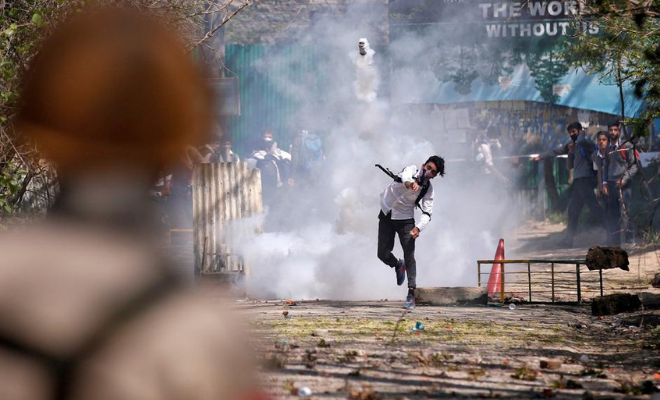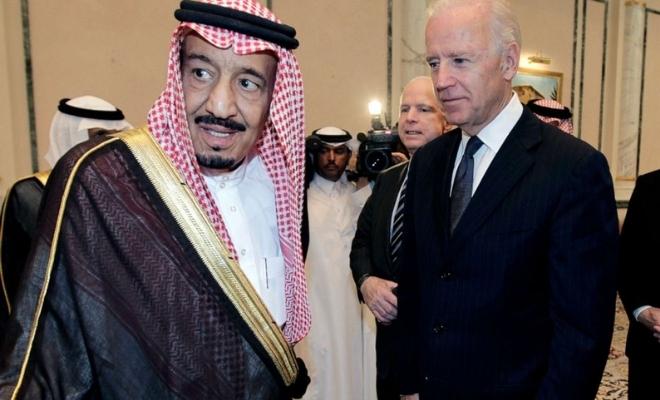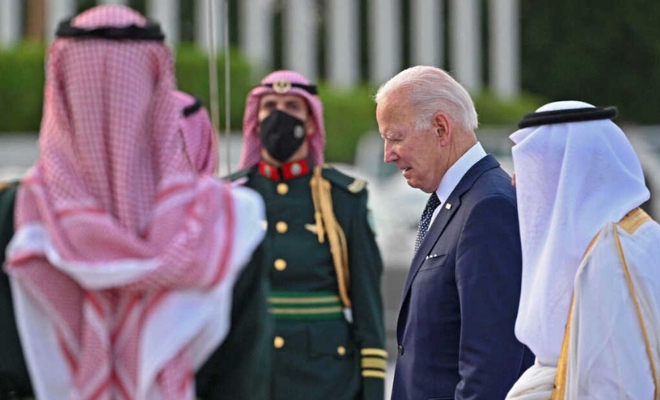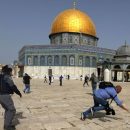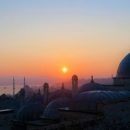Hasina Regime’s Hatred is for Islam!
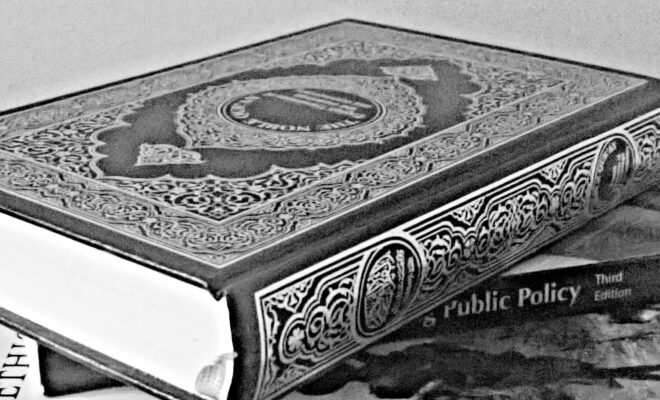
Indian Prime Minister, Narendra Modi, made an official two- day visit to Dhaka on 26 March to attend Bangladesh’s Independence Day celebrations, which coincided with the centenary anniversary of the birth of its founder, Sheikh Mujib ur-Rahman. His visit was met with a wave of protests from various sections of the Bangladeshi political landscape, including student groups and religious parties. They objected to Modi’s presence because of his Hindu nationalist and anti- Muslim agenda, his party’s support of the Citizenship Amendment Act (which mainly targets the Muslim population in Assam), and the predatory economic relationship that India imposes upon Bangladesh.
In response to this popular uprising, Bangladesh’s ruling party, the Awami League, responded with vicious repression. Hefazat-e-Islam, an Islamic advocacy group in Bangladesh, announced a protest after Ju’mah prayers outside of the Bait- al-Mukarram masjid. Members of the Awami League, and its youth wing, the Bangladesh Chhatra League (BCL), trapped the people attending Ju’mah in the masjid and launched an unprovoked attack on them with sticks and firearms, injuring 60 and martyring at least 4. The BCL also attacked a Dhaka university student group at a separate protest, injuring at least 25. Apart from these incidents, the Border Guards Bangladesh (BGB) (which is part of the Bangladesh Army), the police, and the paramilitary outfit Rapid Action Battalion (RAB) detained religious leaders and scholars without charge, initially even denying they were in custody.
What can explain this level of viciousness towards the people of Bangladesh, who out of their loyalty to the Ummah and hatred of injustice, took to the streets to condemn the arrival of the anti-Muslim tyrant, Modi, on their lands?
Is it the corruption?
It is easy to attribute the complete contempt of the Hasina regime towards the Bangladeshi people to the deep-rooted corruption of the Awami League.
Afterall, the government uses gangsters and thugs to achieve its political goals. The army’s head Aziz Ahmed’s own brothers are heavily involved in organized crime and can roam the streets of Bangladesh and abroad with impunity, negotiating government contracts with heavy markups for themselves. The RAB acts at the behest of the government to personally surveil, detain, and harass personal and political enemies. The Border Guards Bangladesh (BGB) do nothing to curtail the flow of criminals or funds into the country if this criminality benefits the regime. While this is common knowledge to the people of Bangladesh, it was brought to a head when a government insider leaked multiple audio and video recordings of government officials admitting to blatant corruption to Al Jazeera.
A ruling elite that can morph the system of governance to their own benefit will naturally eschew any accountability they may face from the common people. But there is something in the intensity of their hatred that goes deeper than this.
Is it the influence of India?
It is also accurate to note that the Hasina regime, in its failure to build an economy and a society around the needs of the people of Bangladesh, is heavily dependent on its alliance with the larger economy and the military of India. The government is eager to build a 1.9 km-long “India-Bangladesh Friendship Bridge (Maitri Setu)” over the Feni River. While the bridge is of vital importance to India’s “Look East” policy, the Hasina regime did not use this access as leverage for anything for the people of Bangladesh whose rivers are dying due to India’s aggressive water policies.
What is more, Hasina’s regime spares no opportunity to display its subservience to India. Apart from inviting Modi to the country’s Independence Day celebrations, Bangladesh also agreed to joint military operations with the Indian army as recently as last year (with no consideration for the fact that the Indian army attacked Pilkhana in 2009 and killed 57 soldiers of the Bangladeshi army).
But the aggression towards the Muslims of Bangladesh by their government is not just optics for the benefit of India. The ingenuity and pervasiveness of the attacks on Islam and Muslims indicates something else at work.
Is it the colonial powers?
The capitals of the colonial powers, Washington, London, Paris, could not be happier than to see the Muslims weakened and subjugated under rulers who despise them. Destroying a unified Khilafah state built upon Islam, dividing the Ummah into dysfunctional nation states, and ensuring the rule of the worst of us in those nation states has been a successful strategy for the colonial powers, and one they are keen to maintain.
And it is true that the colonial powers continue to legitimize the rule of the corrupt and dysfunctional regime of the Awami League in Bangladesh. This explains why the United Nations would remove Bangladesh from its list of Least Developed Countries, labelling it a ‘developing’ nation instead. At a time when poverty doubled to 42% in December 2020 from 21.6% in 2018, and wealth inequality became increasingly stark, such an endorsement of the Hasina regime’s mismanagement of the economy by the UN serves to legitimize it.
Regardless of the cost to Bangladesh’s independence, the World Bank continues to call for further integration of its economy with India’s, using their flimsy models and fictitious projections to make false promises of prosperity. This is in keeping with the interests of the United States, which encourages the further integration of Bangladesh and India as a means of frustrating Chinese regional domination.
The reality – A deep hatred for Islam
The reality is that the Hasina regime’s endemic corruption, humiliating subservience to India and the colonial powers, and its brutality towards its own people are all markers of a deep and fundamental problem – its hatred towards Islam.
The Hasina Regime holds a pathological hatred towards the visible symbols and practice of Muslim life. While this includes its opposition to the implementation of the economic, social and political systems of Islam, it also includes anything that would constitute the visible practice of Islam.
What else would explain the red-carpet treatment for a tyrant who is known for committing genocide against the Muslims under his care in his home state of Gujarat, or the massacre of musallis in a masjid after Ju’mah prayers for opposing his visit?
What else would explain the firing of two lecturers at a public college in Sylhet for merely refusing to wear western style clothing, and donning a more traditional “Panjabi” dress? Or the torture and killing of Abrar Fahad, an engineering student who was targeted by the ruling party’s student wing for being visibly religious and critical of government policy.
What else would cause the Shapla Square Massacre in 2013, where Muslims demanding the government to respond to blasphemy in the society were killed by the BGB and RAB, including seven children. Hundreds were picked up from the communities where the protests came from afterwards?
Ultimately, what else would explain the decision to put up a statue of Sheikh Mujibur Rahman — the founder of the country — showing him as a friend of Kemal “Ataturk” (the traitor who destroyed the Uthmani Khilafah and helped the colonial powers divide and weaken the Ummah)?
It is this hatred that also explains the treatment of the Rohingya people, who are Muslims seeking refuge from merciless slaughter in their own homeland of Arakan, but are kept behind fences in miserable and packed conditions in Cox’s Bazar, in living conditions giving rise to disease, squalor, and fires? The government is currently trying to push these refugees to resettle on Bhashan Char island, essentially a prison which is uninhabitable for portions of the year due to monsoon damage and being on the path of cyclones.
The way forward
The Hasina regime’s hatred and brutality towards the Muslims of Bangladesh and Islam could not be any clearer. This hatred against the guidance of the Creator in the affairs of the society is the cause of the government’s chaotic and humiliating state on both the domestic and world stage.
The system of Islam would not allow the blatant corruption and lack of accountability for those connected to the political and economic elite. As RasulAllah (saw) told us:
“What destroyed the nations preceding you, was that if a noble amongst them stole, they would forgive him, and if a poor person amongst them stole, they would inflict Allah’s Legal punishment on him. By Allah, if Fatima, the daughter of Muhammad stole, I would cut off her hand.” [Bukhari]
Our Creator commands us to not be dependent on the predatory systems of Capitalism, but rather to build our own strength and dignity as an Ummah:
“The believers should not make the disbelievers their allies rather than other believers- anyone who does such a thing will isolate himself completely from God- except when you need to protect yourselves from them. God warns you to beware of Him: The Final Return is to God.” [TMQ 3:28]
But this would require the Muslims to produce leadership that could unite the Ummah under the rule of Islam and have the courage and conviction to implement the light of Islam’s guidance. May Allah (swt) make us of those who are part of this effort.
Umar ibn al-Khattab, may Allah (swt) be pleased with him, is reported to have said: “Verily, we were a disgraceful people and Allah honored us with Islam. If we seek honor from anything besides that with which Allah honored us, Allah will disgrace us.” [Al Mustadrak]

